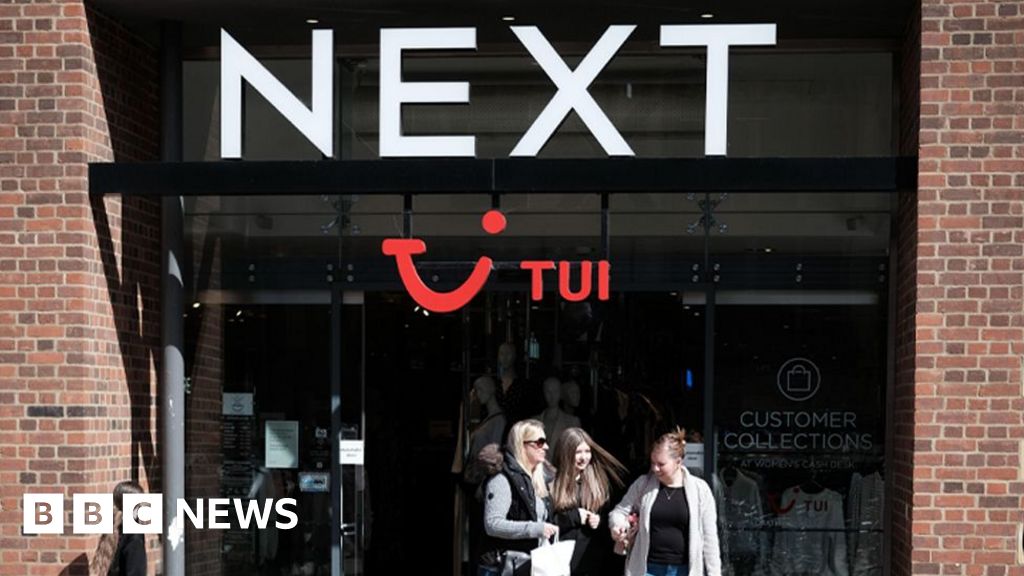Next may close stores if equal pay appeal fails

High street retailer Next has warned it may be forced to close stores if its appeal against a landmark equal pay ruling fails.
An employment tribunal in August found that 3,500 shop staff, who are predominantly female, had been discriminated against because they were paid less than their mainly male colleagues in warehouses.
In half-year results, Next said “inevitably some of our stores will no longer be viable if this ruling is upheld on appeal”.
At the same time, Next lifted its profit forecast for the current year to nearly £1bn.
On Thursday, the retailer confirmed plans to appeal against the ruling, which could force it to pay-out more than £30m to 3,500 current and former workers.
It has argued that warehouse workers are paid more than shop staff in the wider labour market.
Next said it was “very confident” of its grounds for appeal, but it warned that “in the possible (but unlikely) event” that it loses “there will be a financial cost to the group and its ongoing future operating costs”.
It said: “Each of our stores is treated as a business in its own right, and must remain individually profitable if they are to open in the first place and continue trading at lease renewal.”
Meanwhile, Next set out its results for the first half of its financial year.
Overall, Next’s sales rose by 8% to £2.9bn in the six months to 27 July while pre-tax profits increased by 7.1% to £452m.
The retailer lifted its full-year profit guidance by £15m to £995m.
The retailer said overseas sales had risen in the first half thanks to the likes of Netflix, Amazon Prime and TikTok, which are “exposing” people to international fashion trends.
It said it performed better in more affluent countries geographically closer to the UK, but said it was expanding further afield to India and targeting customers in Japan, China and Australia among others.
“Global entertainment is exposing people to international fashion trends in a way they never have been before – think of the global reach of Netflix, Amazon Prime, YouTube and TikTok,” it said.
Next said: “It appears that international tastes in clothing are converging more rapidly.
“International media and global brands expose us to new ideas. They also make looks that might otherwise seem too radical more acceptable.”
Next said sales were highest in mainland Europe. Although it said: “There is a marked difference between different cultures and climates”, adding: “We tend to do much better in Northern Europe than Southern Europe”.
The fastest growing market was in the Americas, where sales jumped by 67%.
Next’s overseas sales were mainly made up of its own-branded goods but said fashion firms it has bought in recent years – including Friends Like These, Cath Kidston and Reiss – have also grown in popularity, making up 42% of online sales.
The company is planning to lift its overseas marketing spending from £24m to £41m.
In the UK, sales of its own-branded clothing fell by 0.9%, which it put down to a cooler summer than the previous year.
Related
Youth football teams hold minute’s silence for 10-year-old Poppy Atkinson
Youth football teams and grassroots clubs across the country have held a minute’s silence at the start of their games to commemorate a 10-year-old girl who di
Girl’s death sparks minute’s silence at football matches nationwide
10-year-old Poppy Atkinson was killed when she was struck by a car during a training session at Kendal Rugby Club in Cumbria. Clubs from Leeds to London
Liverpool fans’ Uefa claim can be heard in England, judge…
The high court, sitting in Liverpool, heard Uefa had relied upon the principle that English courts will not inquire into the legality of actions by foreign gove
Alan Shearer’s Premier League predictions including Manchester United vs Arsenal
Caption: Alan Shearer?s Premier League predictions credit: Getty / Metro After some impressive results for English sides in Europe the focus is












